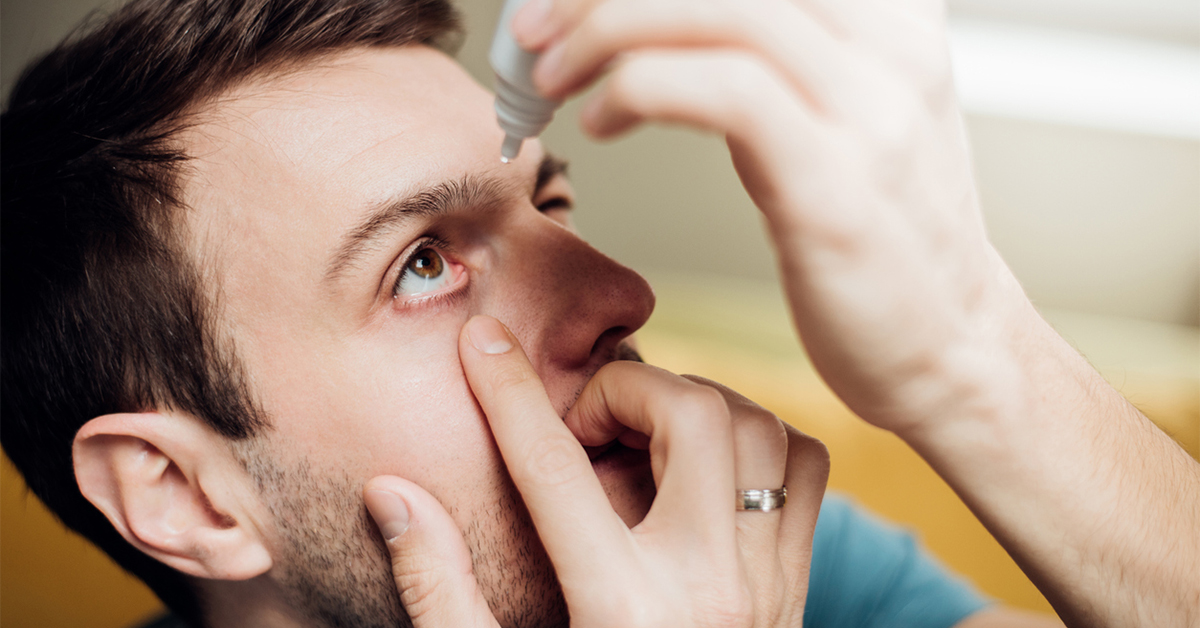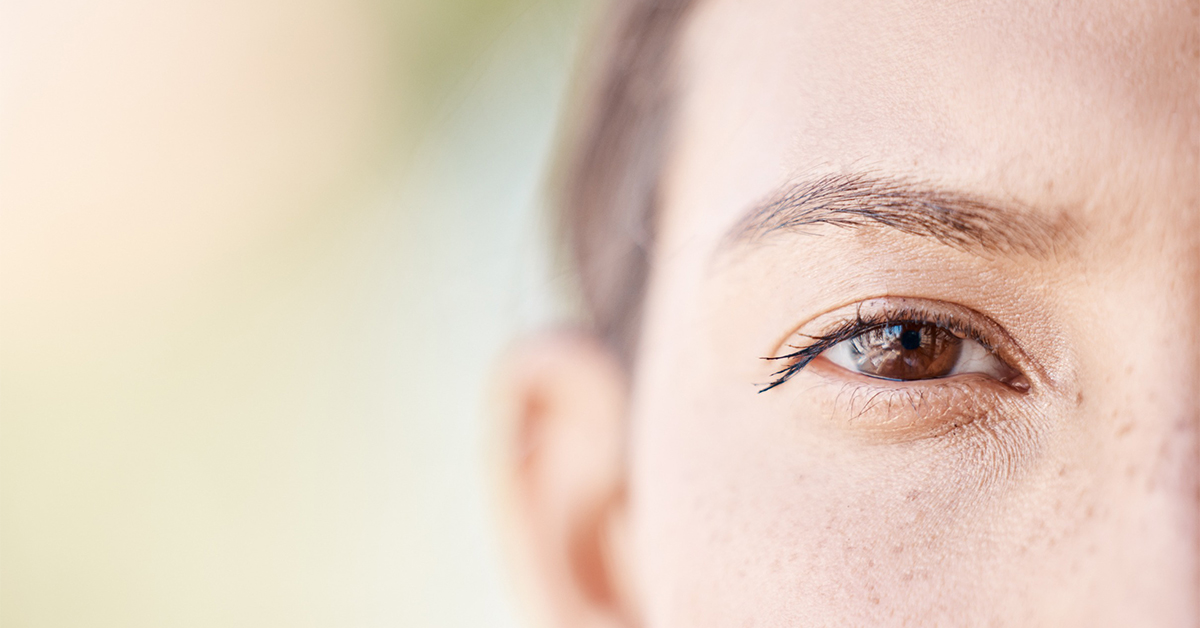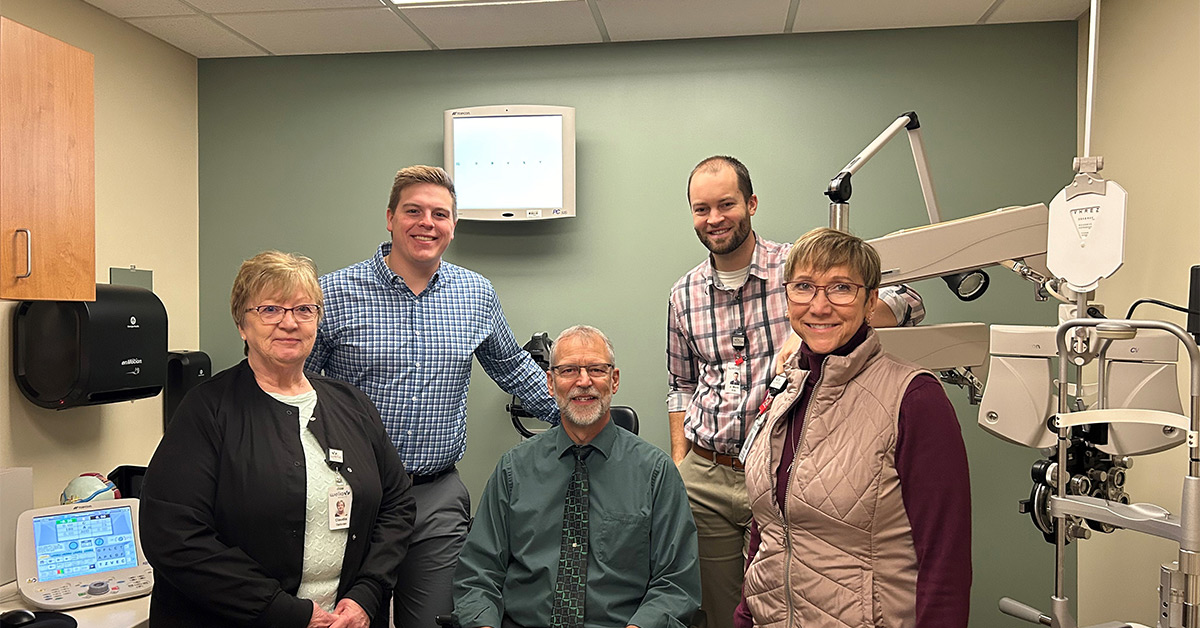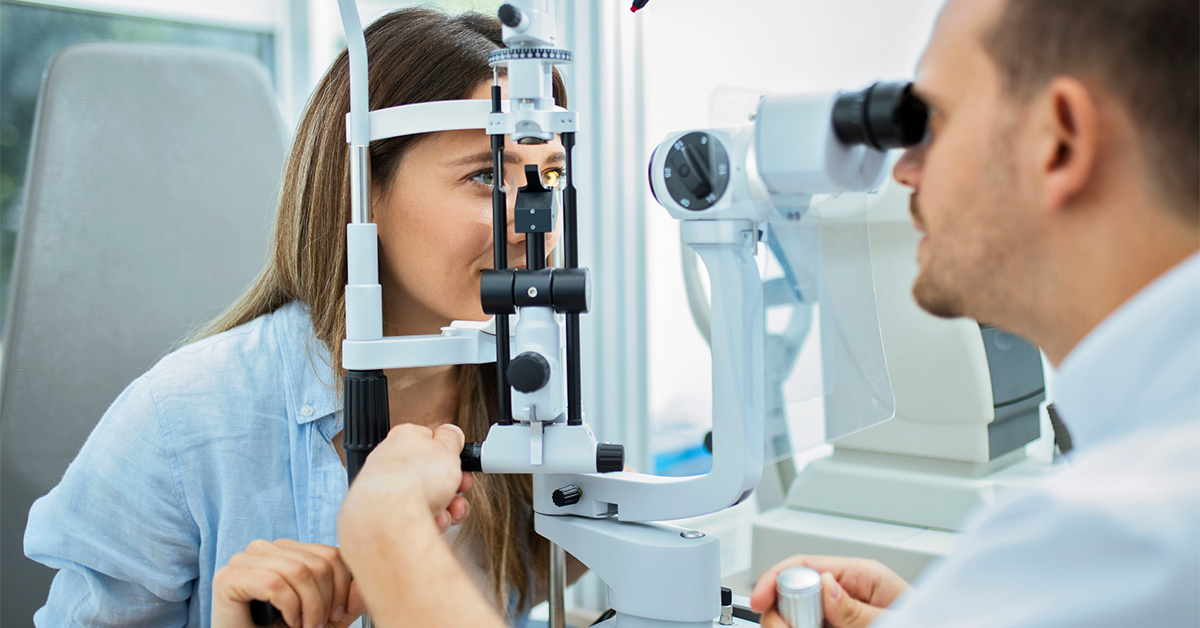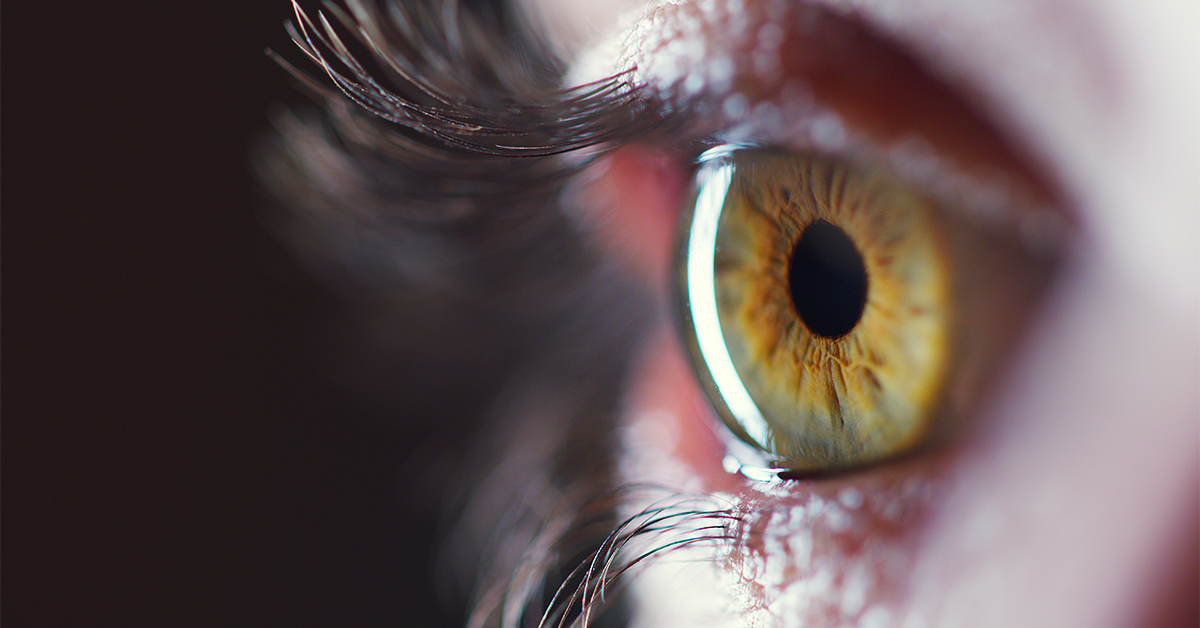The feeling of dryness or grittiness in your eyes can be unpleasant and uncomfortable. According to the American Academy of Opthalmology, approximately 20 million people in the US are impacted by dry eye. That number is growing in both young and old adults. Dry eye occurs when eyes do not have enough tears to keep them lubricated and moisturized. While dry eye can be a chronic condition, it can be managed with proper care and treatment. Read on to learn:
- What is dry eye
- What causes it
- Common symptoms
- Prevention strategies
- Treatment options
- When to see your eye doctor
What is dry eye?
The clinical name, keratoconjunctivitis sicca (hear pronunciation), may be why it is more commonly referred to as ‘dry eye.’ With this condition, eyes don’t produce enough tears, or the tears produced are of poor quality. Tears are essential for your eye’s health and carry nutrients and oxygen to the surface of the eye. It helps to protect your eyes from infections, diseases and provides clear vision. The tear film has three layers: mucus, water, and oil. Any imbalance in these layers may lead to dry eye.
What causes dry eye?
Several factors can lead to dry eye. Some of the common causes include the following:
- Tobacco smoke (smokers are exposed to this known irritant each time they exhale)
- Aging (our bodies produce fewer tears as we get older)
- Environmental factors like pollution and dry air
- Certain medications (like antihistamines)
- Hormonal changes
- Certain medical conditions, including Sjogren’s syndrome
- Prolonged use of digital devices
What are the symptoms of dry eye?
Symptoms of dry eye vary by person, but some of the common symptoms include:
- A gritty feeling or sensation of something in the eyes
- Burning or stinging sensation
- Redness or inflammation of the eyes
- Blurry vision
- Sensitivity to light
- Watery or excessive tearing (a reflex response to irritation)
- Eye fatigue
- Difficulty wearing contact lenses
How can dry eye be prevented?
While some factors that cause dry eye can be out of your control, there are steps you can take to prevent and manage dry eye:
- Blink frequently when using a computer, tablet or smartphone
- Take frequent breaks and position your computer screen lower than eye level
- Avoid smoke, wind, and direct exposure to air conditioning or heating
- For tobacco users, quit smoking
- Use a humidifier when the air is dry
- Drink plenty of water to stay hydrated
- Incorporate omega-3 fatty acids and vitamin A into a balanced diet
How can dry eye be treated?
The treatment of dry eye can depend on its severity. In mild cases, over-the-counter products such as artificial tears, gels or ointments may offer relief.
For moderate-to-severe dry eye, medical treatment may be necessary. Prescription drops, punctal plugs (tiny silicone or gel plugs inserted in the tear ducts to decrease tear drainage), and steroid eye drops are some of the treatment options available.
In extreme cases, surgery may be needed. Welia Health’s eye care providers can help determine the best course of action for you.
When to see an eye doctor about dry eye?
If you think you may have dry eye, we encourage you to schedule a comprehensive eye exam at the Eye Care Center. During the exam, we will assess the quality and quantity of your tears, examine the cornea’s surface, and evaluate the structure of your eyelids. We may also perform some diagnostic tests like Schirmer’s test, fluorescein staining, or tear breakup time to determine the cause of dryness. We can help you manage dry eye and prevent it from becoming worse.
Dry eye is a manageable condition that can significantly affect your daily life if left untreated. By understanding the causes, symptoms, and ways to prevent and treat it, you can take steps to maintain good eye health.
Contact the Eye Care Center
If you suspect you may have dry eye or notice any changes in your vision, call the Eye Care Center at 320.679.2020 to schedule an appointment. We’ll help determine the best way to keep your eyes moist and healthy.


